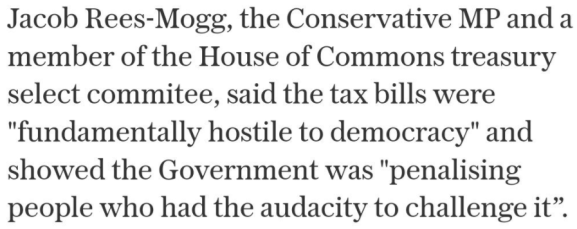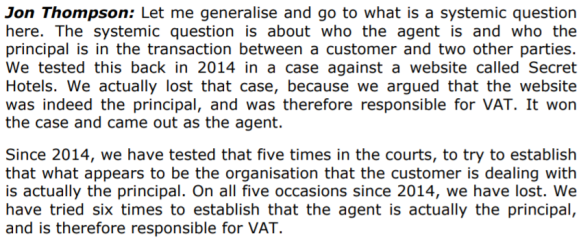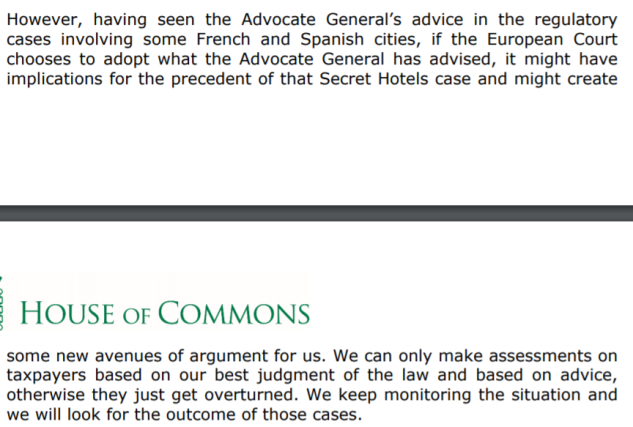For two days in a row the Telegraph – owned by two hugely wealthy men living in a tax haven – has given over its front page to demands for other hugely wealthy men to escape an apparent inheritance tax liability: Lord Edmiston, Arron Banks and Peter Cruddas.
But what’s the real story?
Inheritance tax isn’t quite a tax on inheritances. It’s a tax on gifts – transactions the immediate effect of which is to diminish how much you’re worth – made by individuals whether in life or on death. It’s subject to various exemptions including one for charities and another for recognised political parties.
But there is no general exemption for politically motivated spending.
The rule in question – section 24 of the Inheritance Tax Act 1984 – has been around since at least the Finance Act 1975. It was adopted by our Parliament – by our democratically elected MPs – and has nothing to do with EU law. (Ironically, back in December 2016 Arron Banks claimed to have legal advice that the European Convention of Human Rights rendered section 24 unlawful. I asked him for a copy of that advice and he promised to provide it to me but then broke his promise.)
So the law made by our own Parliament is clear. Parliament has said that if you give large sums – there are various exemptions for small donations – of money to political campaigns you will make a gift and have to pay inheritance tax on that gift.
And HMRC’s obligation is also clear. It is to apply that law and collect the tax that is due. If HMRC does not HMRC breaks the law. If they sought to let Edmiston, Cruddas or Banks off their proper tax liabilities they could (and no doubt they would) be judicially reviewed.
What of the affected individuals?
Each of the three leave voters affected is immensely wealthy and each has a chequered attitude to tax.
Lord Edmiston first. The Mirror reported in 2015 that he was worth £440m and that his initial attempts to become a peer had been blocked because of a dispute with HMRC. The Mail reported that he had received an accelerated payment notice, a notice designed to force those who have engaged in tax avoidance to pay the tax they sought to avoid.
Peter Cruddas was estimated by the Sunday Times rich list to be worth £750m. The Guardian reports that he lived in the tax haven, Monaco, and commuted to work in the City.
Arron Banks has a network of companies set up in tax havens according to this Guardian report. Concerns about his tax affairs have been raised by Charlie Elphicke MP. And his name appeared in the Panama Papers.
In an interview with the New Statesman he said this:

I read this as him saying he is unembarrassed about seeking to minimise his or his businesses’ tax liabilities through the use of offshore tax havens. Despite this evidence he has threatened to sue me for calling him a tax dodger. In that same New Statesman article he also claimed to have been worth, in 2014, more than £100m.
So all three are or claim to be immensely wealthy. And all three are reported to have engaged in behaviour consistent with a rather unpatriotic disinclination to pay their share to the nation.
So what is the objection to the law?
Yesterday the Telegraph reported Jacob Rees-Moggs’ complaint:

And today it reports Boris Johnson and Michael Gove as attacking HMRC for enforcing that rule.

But as I have shown, HMRC is doing no more than acting as Parliament and the law compel it to.
The sums involved are – for you and I – enormous. Yesterday’s Telegraph reported that the demands were for up to £2m.
Nevertheless, Rees-Mogg, Johnson and Gove are suggesting that the law should be disapplied to give these immensely wealthy men huge bungs; bungs against the will of Parliament; bungs that are unlawful; bungs that would increase the deficit; bungs that would increase the amounts teachers and nurses and bus-drivers will have to pay in tax.
That’s what the leaders of Brexit are saying. That you should fund unlawful bungs of money to immensely wealthy Brexiters. That’s how much they care about normal working people.
That’s Brexit for you.






You must be logged in to post a comment.